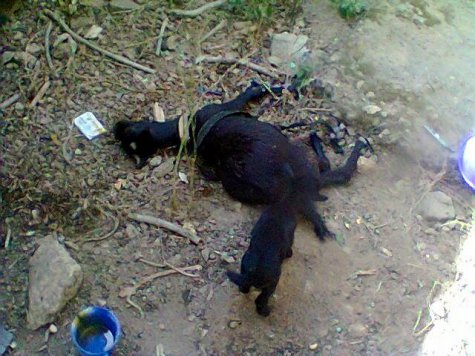
Bill Gates, billionaire philanthropist and Microsoft founder predicted in 2015 that a virus will develop into a pandemic that sweeps the globe. He said the pandemic will catch the world napping.
Now the world witnesses the coronavirus virus which the World Health Organization (WHO) declared a pandemic on March 11, 2020.
The coronavirus has infected 436,623 people globally and claimed the lives of 19,643 so far, according to statistics.
Gates said in a TED talk titled “The next outbreak? We’re not ready”: “When I was a kid, the disaster we worried about most was a nuclear war… Today the greatest risk of global catastrophe doesn’t look like this… If anything kills over 10 million people in the next few decades, it’s most likely to be a highly infectious virus rather than a war.”
“Now, part of the reason for this is that we’ve invested a huge amount in nuclear deterrents. But we’ve actually invested very little in a system to stop an epidemic. We’re not ready for the next epidemic.”
Ebola Outbreak
He highlighted the case of the Ebola outbreak in 2014 which infected 28,616 people and claimed the lives of 11,310 in Guinea, Liberia and Sierra Leone, WHO said in 2016.
“And as you look at what went on, the problem wasn’t that there was a system that didn’t work well enough, the problem was that we didn’t have a system at all. In fact, there’s some pretty obvious key missing pieces.”
“Now, part of the reason for this is that we’ve invested a huge amount in nuclear deterrents. But we’ve actually invested very little in a system to stop an epidemic. We’re not ready for the next epidemic.”
“We didn’t have a group of epidemiologists ready to go, who would have gone, seen what the disease was, seen how far it had spread. The case reports came in on paper. It was very delayed before they were put online, and they were extremely inaccurate. We didn’t have a medical team ready to go. We didn’t have a way of preparing people.”
He continued to say that “the failure to prepare could allow the next epidemic to be dramatically more devastating than Ebola.”
“Let’s look at the progression of Ebola over this year. About 10,000 people died, and nearly all were in the three West African countries. There are three reasons why it didn’t spread more. The first is that there was a lot of heroic work by the health workers. They found the people and they prevented more infections. The second is the nature of the virus. Ebola does not spread through the air. And by the time you’re contagious, most people are so sick that they’re bedridden. Third, it didn’t get into many urban areas. And that was just luck. If it had gotten into a lot more urban areas, the case numbers would have been much larger.”
“So next time, we might not be so lucky. You can have a virus where people feel well enough while they’re infectious that they get on a plane or they go to a market.”
“So next time, we might not be so lucky. You can have a virus where people feel well enough while they’re infectious that they get on a plane or they go to a market.”
In present day, researchers have found that the coronavirus could remain in the air for up to three hours, according to a study done by the National Institute of Allergy and Infectious Diseases’ Laboratory of Virology in the Division of Intramural Research in Hamilton, Montana in the US, where researchers used a nebulizer to blow coronaviruses into the air.
The coronavirus, COVID-19, can survive up to four hours on copper, up to 24 hours on cardboard, and up to two to three days on plastic and stainless steel, according to a recent study. The researchers also found that this virus can hang out as droplets in the air for up to three hours before they fall. But most often they will fall more quickly, according to the University of Harvard’s health publishing website.
Global preparedness strategies
Gates suggested in his 2015 talk a few strategies to raise global preparedness to combat the spread of any virus.
“First, we need strong health systems in poor countries. That’s where mothers can give birth safely, kids can get all their vaccines. But, also where we’ll see the outbreak very early on. We need a medical reserve corps: lots of people who’ve got the training and background who are ready to go, with the expertise. And then we need to pair those medical people with the military. taking advantage of the military’s ability to move fast, do logistics and secure areas.”
He added: “We need to do simulations, germ games, not war games, so that we see where the holes are. The last time a germ game was done in the United States was back in 2001, and it didn’t go so well. So far the score is germs: 1, people: 0. Finally, we need lots of advanced R&D in areas of vaccines and diagnostics.”
“So I think this should absolutely be a priority. There’s no need to panic. We don’t have to hoard cans of spaghetti or go down into the basement. But we need to get going, because time is not on our side.”
Watch below
Credit –> Via





